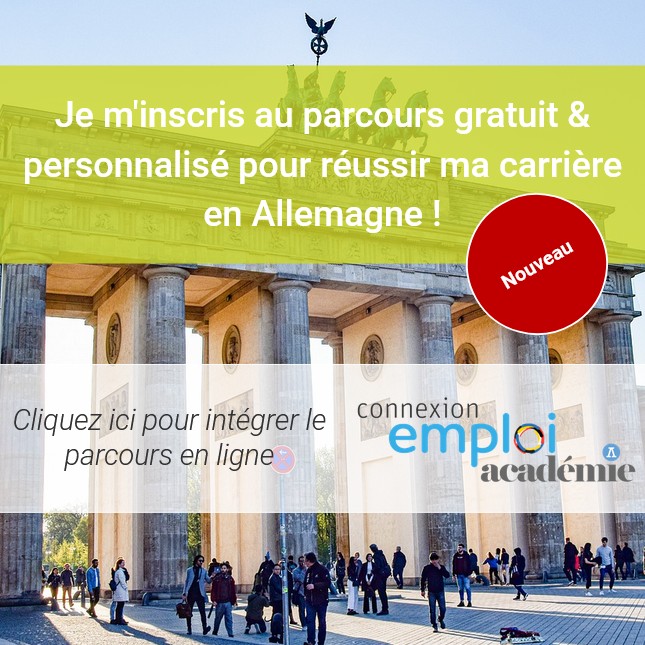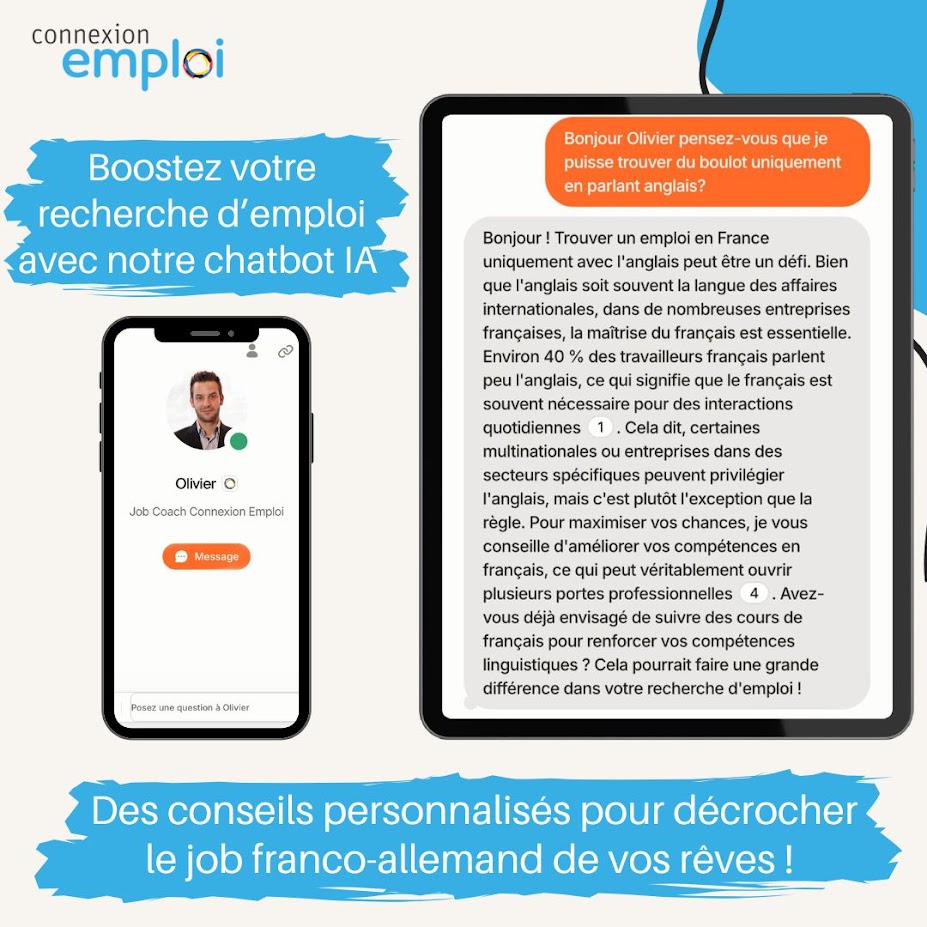Top 10 recruiting trends in Germany in 2025

In complicated times, when one crisis follows another, it's very important to remain agile & up to date on the evolutions of HR and recruiting so as to retain top talent and to find the right partners for what's yet to come. The times don't show the same signs everywhere. If you're looking to hire or get hired in Germany, you should know precisely what's happening at the local forefront of recruiting. We summed up the 10 predominant trends.
 We interviewed Jérôme Lecot, CEO at Eurojob-Consulting, the french-german recruiting firm.
We interviewed Jérôme Lecot, CEO at Eurojob-Consulting, the french-german recruiting firm.
"Finding the way to your dream job on the other side of the Rhine will be a lot easier if you know the 10 tendencies currently observed in recruiting in Germany. For example, the greatest obstacle for candidats, the cover letter, will soon be a thing of the past! Recruiting processes are going through major transformations. Mailing in your photo and your job certificats to apply has become quite rare. Emailing has long become the norm, for recruiters and candidates alike. Now, artificial intelligence is already gaining the upper hand during the first steps of the talent hunt in modern companies."
2. The traditional motivational letter is disappearing
3. Your application files need to be updated and available
4. The quality check
5. Tomorrow’s competencies
6. Offer flexible work models for German employees
7. Set up online application processes
8. Use artificial intelligence and automation
9. Establish greater trust with applicants in Germany
10. Positioning yourself as a sustainable employer in Germany

The CV is more important than ever because of the shift towards online applications. For HR professionals, the CV is what the decision to go further with an application is almost entirely based upon.
For candidates, this means that highlighting qualifications and expertise for target employers and presenting them in a comprehensible manner is indispensable.
One can not simply list the different career stages, but ought to provide key information about assignments and areas of expertise. You can use the following questions to check if your CV is still in shape:
What qualifications are worth detailing because they highlight your suitability for the offered position?
Do you have any experience that would set you apart from other applicants?
Did you have budget and personnel responsibility?
Have you been responsible for a successfully completed project?
It is therefore important to mention all these elements specifically and to invest sufficient time and thought in the creation of your CV.
Remember: Your German CV should not exceed 2 pages. Only for special projects or if you have a whole lot of experience, a third page is admissible.
Many candidates struggle to find the time for demanding application processes. They tend to avoid writing their motivational letters one by one. This is even more of a hurdle if you haven’t perfectly mastered the German language but want to work in Germany.
From this perspective, it may seem all the better if recruiters don’t expect a full fledged letter anymore. Everybody saves some time.
Nonetheless, it remains necessary to customize your application. A short paragraph in a text field on the CV can replace the traditional cover letter and save you the trouble of finding the perfect balance between what describes you and what suits the company you are aiming for.

You have probably already experienced this situation: on the train, while waiting at the airport or at home on the couch, you have clicked on current job offers and decided to apply for them without giving it any more thought. In some companies, this is actively made possible by a "one-click application" option, where only the most important data is transmitted.
But with a smartphone, you can theoretically apply from anywhere, provided that all the necessary documents (such as your CV) are saved on your device.
This works either by uploading your resume to your profile on a job platform and applying to an advertised job there, or by storing your documents in your cloud or local disc space. Documents can be accessed from anywhere via Dropbox, Google Drive & Co. If that’s something you’re going to do, it’s obvious your CV should be kept up to date continuously.
Job searching with cell phones makes navigating your career options a lot easier, but it is still important to apply meticulously: a quick and uncomplicated application can make you forget to check twice what you send to your potential employer.
Depending on your ease with words, spell checking should actually take at least as much time as the writing itself. For non-native speakers, there are a lot of tricky details in the German language that are easily forgotten.
German manners and the phrases that are considered polite are still expected. A telegraphic style, abbreviations and a familiar form should be strictly avoided.
Don’t forget to double check if the documents the company asked for are attached to your application.

Competencies that will play an even more important role in the selection of candidates in Germany in the future are digital literacy (digitale Kompetenz), complexity management, virtual management capabilities (virtuelle Führungskompetenz) and team collaboration (Zusammenarbeit).
HR respondents in Germany believe that emotional and social intelligence as well as resilience will also keep gaining importance.
Various studies conducted in 2022 have shown that employees want more flexibility in their work. For example, more than 80 % of employees are satisfied with working from home and would also like to be able to work from home.
In addition, 10% of employees can see themselves working in a co-working space. This shows that flexible working models are gaining ground in Germany and will become an indispensable advantage for employees (existing and new) in the future.

The recruiting process will mostly take place online nowadays, from sending the application to the interviews (and likely a part of the job as well). Just over 60% of companies in Germany currently conduct the first interview digitally and one in six companies relies exclusively on video job interviews.
In the long term, online interviews will become an indispensable part of the recruitment process.
Artificial intelligence can become more and more supportive of your recruitment tasks. For example, applications can be screened and pre-screened by various software programs before being processed by HR.
Automation tools can also automate certain administrative and repetitive processes in recruitment, which saves a lot of time.
You may react more or less strongly to this notion and stress that the character traits of a person can only be properly evaluated by a fellow human being - and of course you are still right. The number of steps you chose to delegate to A.I should depend on the time you have and the importance of the soft skill set for the position you are filling.
One such trend is Programmatic Job Advertising, which allows you to advertise directly to the most suitable target groups using artificial intelligence (algorithms) and to determine the recruitment budget in a very customizable way.
Our video tips for understanding recruitment trends in Germany as a candidate

The fact that home office work has gained such appreciation over the last year indicates that trust in your coworkers and employees pays off, as opposed to permanent control.
In most cases, employers report that home office work was well performed and sometimes even raised productivity, without any strict control measures. Employees appreciate being trusted. This goes hand in hand with the fact that companies with particularly flat hierarchies are becoming more popular, as employees can take on more responsibility.
Contrary to most other political opinions, employees bring their concerns for climate change to the workplace. Your employer brand can rise and fall with your environmental impact.
In this context, it’s increasingly important to commit to sustainability within the company and to position oneself as a sustainable employer. For example, business travel could be reduced, and waste separation and use could become an essential part of the corporate culture.
Regarding this matter, the option to work from home can also help, if it means reducing employees’ daily travel times.



 Fr
Fr De
De En
En











